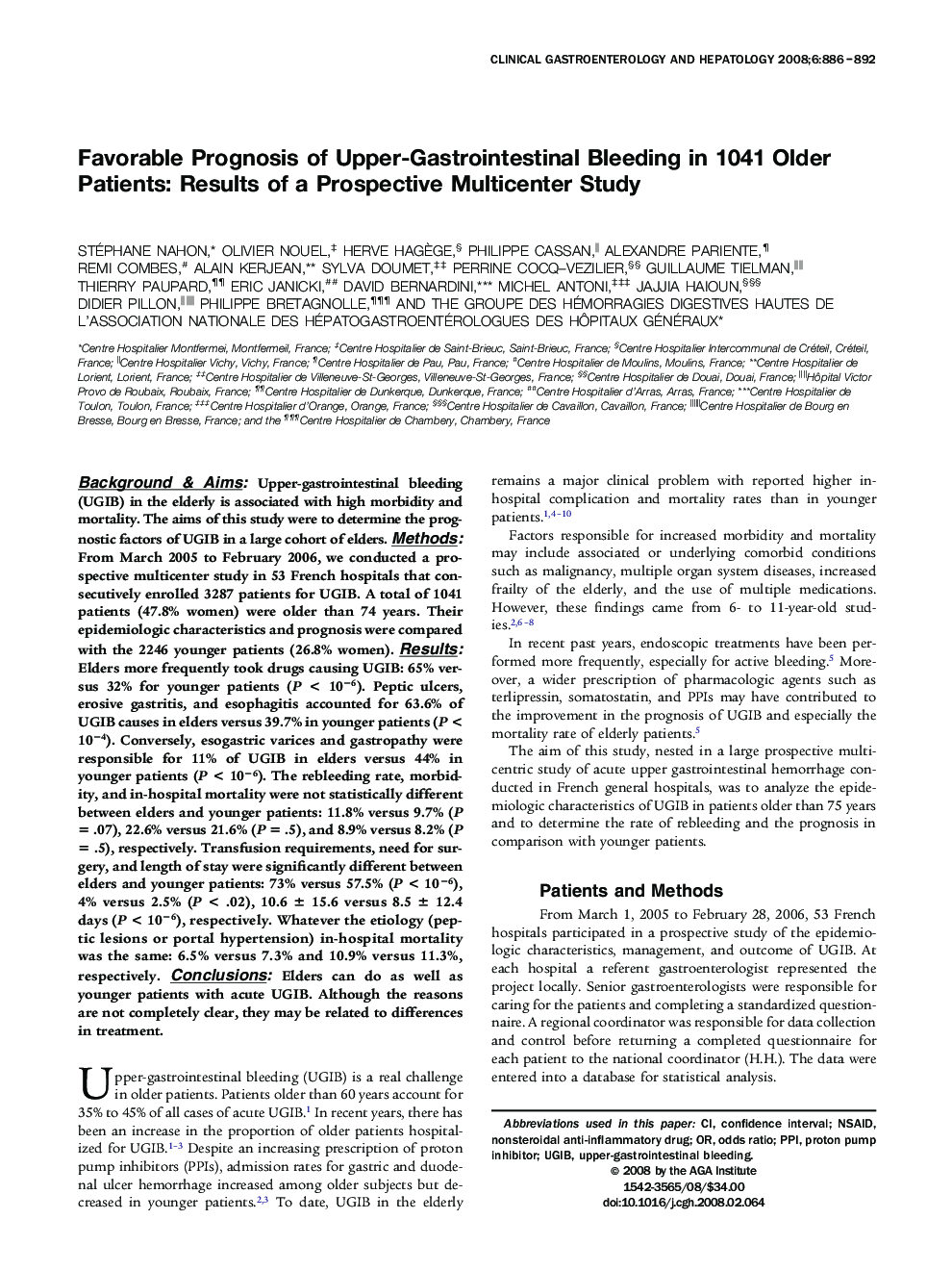| Article ID | Journal | Published Year | Pages | File Type |
|---|---|---|---|---|
| 3285543 | Clinical Gastroenterology and Hepatology | 2008 | 7 Pages |
Abstract
Background & Aims: Upper-gastrointestinal bleeding (UGIB) in the elderly is associated with high morbidity and mortality. The aims of this study were to determine the prognostic factors of UGIB in a large cohort of elders. Methods: From March 2005 to February 2006, we conducted a prospective multicenter study in 53 French hospitals that consecutively enrolled 3287 patients for UGIB. A total of 1041 patients (47.8% women) were older than 74 years. Their epidemiologic characteristics and prognosis were compared with the 2246 younger patients (26.8% women). Results: Elders more frequently took drugs causing UGIB: 65% versus 32% for younger patients (P < 10â6). Peptic ulcers, erosive gastritis, and esophagitis accounted for 63.6% of UGIB causes in elders versus 39.7% in younger patients (P < 10â4). Conversely, esogastric varices and gastropathy were responsible for 11% of UGIB in elders versus 44% in younger patients (P < 10â6). The rebleeding rate, morbidity, and in-hospital mortality were not statistically different between elders and younger patients: 11.8% versus 9.7% (P = .07), 22.6% versus 21.6% (P = .5), and 8.9% versus 8.2% (P = .5), respectively. Transfusion requirements, need for surgery, and length of stay were significantly different between elders and younger patients: 73% versus 57.5% (P < 10â6), 4% versus 2.5% (P < .02), 10.6 ± 15.6 versus 8.5 ± 12.4 days (P < 10â6), respectively. Whatever the etiology (peptic lesions or portal hypertension) in-hospital mortality was the same: 6.5% versus 7.3% and 10.9% versus 11.3%, respectively. Conclusions: Elders can do as well as younger patients with acute UGIB. Although the reasons are not completely clear, they may be related to differences in treatment.
Keywords
Related Topics
Health Sciences
Medicine and Dentistry
Gastroenterology
Authors
Stéphane Nahon, Olivier Nouel, Herve Hagège, Philippe Cassan, Alexandre Pariente, Remi Combes, Alain Kerjean, Sylva Doumet, Perrine Cocq-Vezilier, Guillaume Tielman, Thierry Paupard, Eric Janicki, David Bernardini, Michel Antoni, Jajjia Haioun,
